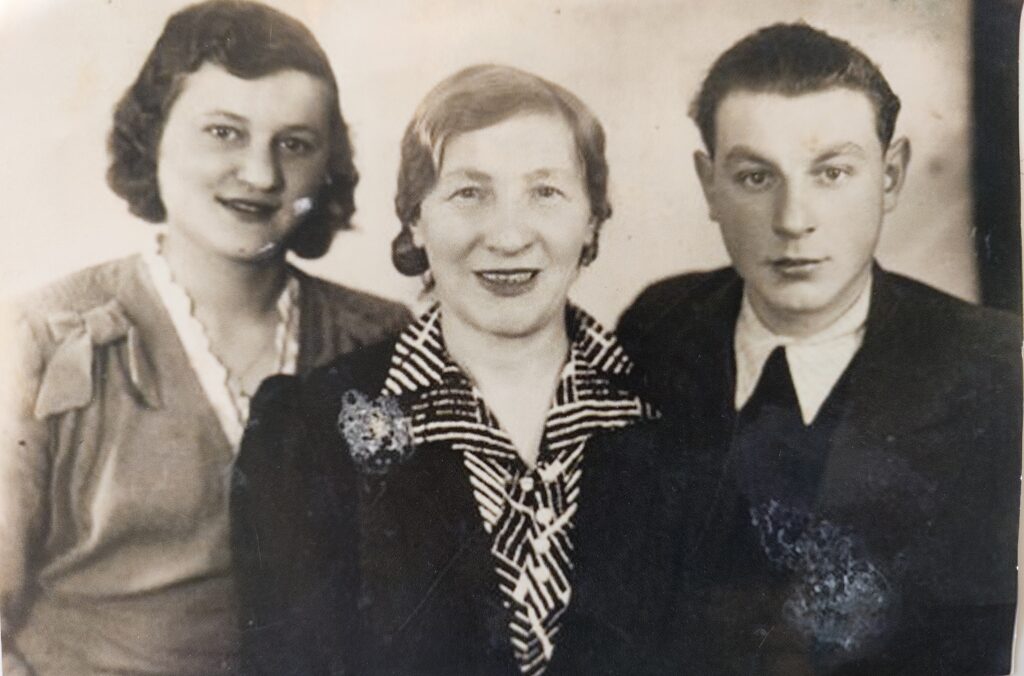
A.
The year is 1945. The place is the American Zone in post-war Munich. Leon Wasser, a 22 years youngster born in Lublin, a Holocaust survivor, is wondering through the various refugee aid centers. He has no citizenship, no state, no property, and no documents. His father and sister were murdered during the war. He, his mother and one sister survived. He is penniless and traumatized, but determined to build a future for himself.
Initially he is sent to the Displaced Persons camp in Bad Reichenhall. From there, he plans what to do next. The default option is the UNRRA university that was established in Munich to help Displaced Persons in urgent need of education. But Leon decides to embark on another path. He manages to do the impossible. He gets accepted to study dentistry at one of the leading universities in Europe, which to this day is also one of the leading universities in the world – Ludwig Maximilian University in Munich (LMU).
He finds himself a residence in proximity to the university. Among other locations, an attic in Orleansstraße 7 and a room at Pfarrstrase 5. Toiling on arduous curriculum in the land of the murderers of his family, probably hiding being Jewish, must have been painfully demanding. Luckily, his outstanding talent and brilliance and his perfect German helped him to fulfil the task and complete his studies with honors. In 1951 he received his diploma and immigrated to Israel. A few years later he married and started a family. Until retiring he worked as a successful dentist in Israel. From a displaced person he became a happily placed person; a devoted husband a father to three children. Until his last days he remained a real humanist.
In a retrospective, his time in Munich after the war shaped his future and the rest of his life. It enabled him to maintain a successful and fulfilling career and a safe haven for himself and his family.
This man, Dr. Leon Wasser, is my father.
B.
My father never agreed to talk about those years or to relate what he went through. It wasn’t until years after his death that I decided to take a single thread – his diploma from LMU – and start researching. I reached out the Historical collections unit at the LMU Archives. Daniel Schneider from there promptly answered. He located my father’s LMU documents, and suggested I might learn more by contacting Jutta Fleckenstein, deputy director of the Jewish Museum Munich, that currently curates the museum’s exhibition “Munich Displaced – The Surviving Remnant”. Luckily, I followed the suggestion.
In January 26, I met Jutta in the Jewish Museum Munich, and had the extraordinary privilege to be guided by her through the exhibition she curated together with Ulrike Heikaus. With the few documents I gave her, and mainly thanks to the vast knowledge she acquired and the great sensitivity with which she approaches the subject, Jutta managed to suggest a coherent narrative that recreated the likely course of Leon’s years in Munich. It’s a puzzle most of which is still missing. But the general outline and significant segments have been revealed.
Through the story Jutta told me, I realized how extraordinary, courageous, and inspiring my father’s Munich time was. How did he manage to do it? Who were his friends? Who helped him? I’d like to know more. Understand more. Discover new things. It seems I have a meaningful linkage to Munich. I would like to further explore it and further pursue the exciting journey with Jutta. I know I will. And in the meantime: thank you, dear Jutta for shedding much needed light on a gap in my father’s history and the history of the entire group of DPs. I am sure there is more revelations to come.
Prof. Shulamit Almog
Haifa, Israel
Die Ausstellung „München Displaced. Der Rest der Geretteten“ ist eine Bestandsaufnahme zur Münchner Nachkriegsgeschichte. Viele Detailinformationen, Fotos und Erinnerungsstücke fehlen noch. Inzwischen haben Besucherinnen, Nachfahren von Münchner DPs und andere Interessierte ihre Erinnerungen mit uns geteilt.
Weitere Updates:
- Update München Displaced // Der DP-Künstler Pinchas Schuldenrein
- Update München Displaced // Elias Stern
- Update München Displaced // Ernest Landau
- Update München Displaced // DP Camp Neu-Freimann
- Update München Displaced // Hebräisches Gymnasium
- Update München Displaced // Maria Leipelt und die Siebertstr. 3
- Update München Displaced // Leon Garnczarski
- Update München Displaced // Jüdisches Krankenhaus
- Update Munich Displaced // Film as Relief in Postwar Munich
